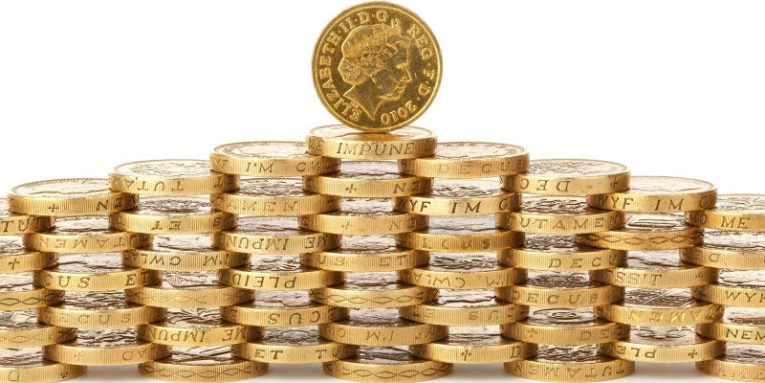Scammers Use a Facebook Rewards Team Scam to Retrieve Passwords

Have you ever received an email, a message on one of your social networking platforms, or a random pop-up/banner notification online stating that you have won money? If you have, you have faced virtual scammers. Hopefully, you recognized the scam right away, and you did not get yourself involved. Unfortunately, not all scams look or even work the same, and schemers always find new ways to trick people. As you probably know, Facebook is one of the largest, most popular social networking platforms in the world, and, unsurprisingly, it offers the perfect environment for schemers to pounce on people. In this report, we discuss Facebook scams that are set up to trick unsuspecting victims into disclosing their passwords and other sensitive information in return for money.
Table of Contents
How to recognize Facebook scams?
Recognizing a scam should not be difficult because, in most cases, the hook of the scam is a too-good-to-be-true offer. Depending on the scam, you could be informed that you are eligible for a prize giveaway, that you have an opportunity to claim a once-in-a-lifetime deal, or that you have won something already. This is one category of Facebook scams. There are also scams that are set up to redirect you to malicious web pages or installers via misleading links, or scams that help execute malware on your computer or device without your knowledge. Such Facebook scams are much more sophisticated, and, unfortunately, it is easier to trick people on Facebook using them. In any case, whether it is a fake giveaway/lottery/win scam or a more sophisticated phishing scam, there are telltale signs that might make it easier for you to recognize them and, of course, defend yourself against them.
It MOST LIKELY is a scam if:
- You are being offered something for free;
- You are being offered something for an unreasonably low price;
- You are informed that you won something without previous participation;
- You are sent random messages and links via direct messaging from unknown parties;
- You are asked to disclose sensitive information.
The last point has to be taken seriously because, in many cases, scams are set up only so that schemers could extract sensitive information. Scammers on Facebook steal passwords if the conditions are right, and you are responsible for making sure that these conditions do not exist at all.
Don’t fall for the Facebook Rewards Team scam
It is sad to say, but not many things in this life are free. Unfortunately, your chances of winning the lottery are slim as well; especially, if you do not participate in the first place. That is what you need to keep in mind if you are ever informed that you won something online. The perfect example of that is the Facebook Rewards Team scam. It has been around for years now, but, unfortunately, schemers continue to exploit it. For example, GrimsbyLive recently reported a scam that claims to offer a £70,000 prize for Facebook users, and the Facebook Rewards Team is, allegedly, behind it. The “winner” is contacted directly via Facebook Messenger, and they are immediately asked to confirm their identity by disclosing their full name, home address, occupation, phone number, country of residence, monthly income, date of birth, sex, disability, email address, and marital status. The scammer behind this Facebook scam also wants a picture of a driver’s license or ID card. Finally, the scammer asks to share the Facebook email address and password. Not a single piece of this information should be disclosed!
If you disclosed this private information as well as Facebook login information, the scammer could try to take over your account and your virtual identity. Scammers on Facebook steal passwords and other sensitive data not because they are interested in seeing your photos or private messages but because this data can be sold on the black market. Cyber crooks are more than willing to pay to get this data so that they could spread phishing messages to everyone in your contacts list or post malicious links on the wall, in the comments, in groups, and so on. Furthermore, using the retrieved data, the attackers could try to gain access to different accounts. According to statistics, 83% of people admit to recycling passwords, and that means that Facebook passwords are likely to be recycled too.
Cyber attackers have software and hardware that can help crosscheck different login options on multiple platforms at once, and they do not need to work hard at it either. Unfortunately, that means that if you have been tricked by the Facebook scam or some other scam, accounts on different platforms could be at risk also.
What to do if you become a victim of the Facebook scam?
Scammers on Facebook steal passwords, login names, contact details, and other sensitive information. If you are vigilant, you should be able to avoid such scams without much trouble. However, if you are tricked, you cannot waste any time. DO NOT hide under a rock hoping that things will resolve on their own. They will not, and it is your job to resolve the issue. Now, while you might be unable to do much about schemers knowing your full name, date of birth, marital status, or your disability, you can secure your accounts, and you can become more cautious about who contacts you. Note that once the schemers know your email address, home address, or telephone number, they could approach you with different scams, and so you need to be cautious.
When it comes to securing your accounts, first and foremost, change ALL compromised passwords. That means that if you use the same password on other accounts, not just Facebook, you need to update them as well. We strongly recommend employing a reliable password manager to assist you. Cyclonis Password Manager, for example, offers free services, and it can generate strong and unique passwords, keep them safe, analyze existing passwords to check for their strength, as well as help you log into your accounts safer and quicker. It is also important to set up two-factor authentication when it is available. If you set it up, the schemers behind the vicious Facebook scam might be unable to overtake your accounts even if they steal your password successfully. If someone has hacked your Facebook account successfully, continue reading here to learn how to deal with it.








